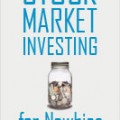Why do we make investing in the Stock Market so much more complicated than it needs to be? Time and time again the data show us that investing in Stock Market Index Funds is the best choice for almost everyone!
This article will discuss some basic stock market investing topics and show you why investing in Market Index Funds is best for nearly everyone! If you’re pressed for time, then skip down to the video where I summarize everything for you.
Who Should Invest in Market Index Funds?
Anyone can invest in these types of funds. Remember, you should only be investing in the Stock Market if:
- You are not investing with money you cannot afford to lose (i.e. you have some amount of emergency money saved up)
- You will not need to money for 5+ years
- You understand the basics of what you are investing in (I will help you here)
- You understand that you are taking a risk with your money for a potential reward
What Are Market Index Funds?
So, what the heck are market index funds? Well, you’ve probably heard of the Dow Jones Industrials Average or the S&P 500. Market index funds are mutual funds or exchange traded funds (ETFs) that hold stocks that mirror the index they track.
Because the S&P500 index is made up of 500 large US companies, it is preferred by most for its diversification (the DOW is only made up of the largest 30 companies). Because of this, the S&P500 is most representative of the overall US Stock Market.
The most popular mutual fund that tracks the S&P 500 is VFINX. The most popular ETF that tracks the S&P 500 is SPY.
When Should I Invest in Market Index Funds?
So, when is the best time to buy some VFINX in your 401K/IRA or SPY in your personal trading account? There are two methods of thought on this:
- save up cash money and try to time the market when it goes lower to buy.
- buy on a routine schedule (each month or quarter) without regard to the market price at the time.
You’re probably thinking to yourself, I’m smarter than most so I’ll go with #1 and make a higher return on my investment! If you are just starting out investing, please do NOT try this. I did and got my ass kicked several times (more about this in a future post)! Many friends have done this and all come out way behind. Several co-workers of mine have also tried to time the market and lost out. You’ll always hear of that one guy/gal who nailed the timing perfectly and made a ton of extra money, but do you think they can consistently get it right for 30-40 years in a row?
Almost no one is the world is that good at consistently calling tops and bottoms in the Stock Market. In reality, you probably stand to lose a lot more time and money by trying to time things… no one knows what the market is going to do next! This is why, over time, I have become a strong proponent of #2. This method of investing is called dollar cost averaging (DCA).
Where Should I Invest in Market Index Funds?
For VFINX, you can invest in this through just about any 401K or IRA plan that you have setup. In my case, I need to pay a $130 a year “self directed brokerage fee” to allow me to purchase this mutual fund (well worth it). This fee is basically highway robbery by Merrill Lynch to drive people into their crappier funds where they skim more off the top (see below for more info).
For SPY, you can buy this through any normal trading/investing account that you have setup. If you don’t have one setup, hang tight. A future post will guide you through how to do this. I have used both Scottrade and ThinkOrSwim and can recommend both of them.
Why Should I Invest in Market Index Funds?
OK, we’re finally getting to the meat of this article. Why is investing in market index funds better than some of these alternatives?
- pick your own “basket” of individual stocks.
- look through lists of mutual funds and try to pick the ones you think will perform the best in the future.
- pay money managers to handle everything for you so that they don’t need to worry about it.
Investing in VFINX or SPY is better than the above three options for all of these reasons:
- Simplicity
- You can set these up and leave them on auto-pilot. If you are trying to manage your own basket of individual stocks, dig through mutual fund lists looking for that gem, or work with your financial guy, you will spend a lot of your precious time vs. just buying the one index fund each period in about two minutes.
- Lower Cost
- You can quickly rack-up large trading fees if you are trying to maintain your own diversified basket of stocks. This can easily hit several hundred dollars a month.
- If you will be trading in and out of stocks frequently, the tax man will come for you! Any gains made where the stock was not held for at least a year get taxed at 28%-35% vs. the long-term capital gains rate of 15%.
- For mutual funds, they typically have an expense ratio NINE times higher than VFINX or SPY! On the average, actively managed mutual funds will take about 1.14% extra your money each year over market index funds!! Hey, those Wallstreet guys need to get paid, right?
- Obviously, if you use a financial management person they do not come cheap. By investing in market index funds, your expenses will be ~$7 a month at most.
- Risk
- If you go it alone, you may not diversify your risk through the stocks that you pick. This is great if you get lucky and pick a home run, but you are just as likely to catch the “hot potato” and torpedo your portfolio. You’re basically playing the lottery with your hard earned money. Not very smart… With an market index fund like VFINX or SPY, you literally have ownership in 500 of the largest US companies, so you are well diversified.
- Return on Your Investment
- Only 1 out of every 5 mutual fund managers outperformed the S&P 500 index fund over the past 10 years!!! This is even before fees are taken into account! Over the long-run, it is almost impossible to beat the overall market, so why try?
- Mutual fund companies are always creating new funds and shuttering under-performing funds to make it look like they have more winners. This just increases the likelihood that you will pick a dud fund.
How Should I Invest in Market Index Funds?
This is the easy part. Just buy VFINX or SPY as you would any other mutual fund or stock. I plan to make a future video on how to do this for all the people brand new to investing. It really is pretty easy!
In the video below, I recap for you why market index funds really are your best bet when investing in the Stock Market.
So, there you have it! Hopefully, I’ve convinced you that a market index fund such as VFINX or SPY is the best way to get started with investing in the Stock Market for the long-term because it is simpler, lower cost, and will likely lead to you getting the best long-term returns on your investment!
In future posts, we’ll explore the positives and negatives of other types of similar investments such as foreign market index funds.
What experiences do you have with index funds? Any reason why you won’t try them after reading this article?







I was searching about mutual funds when I found this site. Great post here and I have learned a lot about index funds.
Jean @How To Make Money recently posted…Teaching Kids About Money And Financial Literacy
Jean,
Great! I’m glad I could help you on your financial journey!!
Hi, I don’t have lots of money. I save change for my small grandsons. It really does not earn anything sitting in the bank. They both now have over a thousand dollars and I thought maybe I should invest it and maybe it will grow before they become college age. They are 4 and 7. I add to the money as the change becomes enough to deposit it in their individual bank accounts. Do you have any investment tips for them. Is it even worth it with the small amounts I save for them. Hoping for a response.
Eunice,
Thanks for stopping by! Because you are starting with a small amount of money, my best advice is to look for a broker with low fees. I suggest TD Ameritrade because they offer trades as low as $5.
I would suggest you work on helping them to understand investing in general and the power of compound interest. These are important to understand before you begin purchasing stock. From there, you can check out my book (see link at the top of the site). This gives a general introduction to investing for the complete newbie. It may be tough to get across some of the concepts to a 4 year old though :-).
-Good luck!